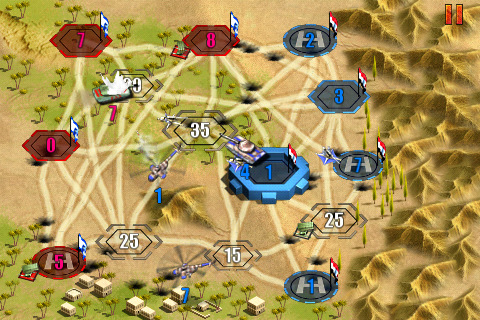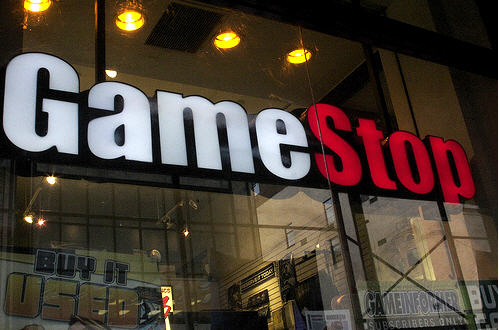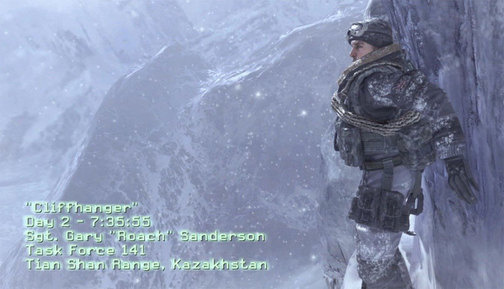 The latest in self-important mobile app developer drama comes from Gameloft, but it’s not the usual iPhone bashing we’ve come to expect.
The latest in self-important mobile app developer drama comes from Gameloft, but it’s not the usual iPhone bashing we’ve come to expect.
Instead, Gameloft finance director Alexandre de Rochefort declared (via Reuters) that the company’s got beef with Android. “We have significantly cut our investment in Android platform, just like … many others,” he said at an investor conference in Barcelona. He explained that the Android Market is just too weak compared to the iPhone’s App Store, on which Gameloft sells 400 times more games.
“Google has not been very good to entice customers to actually buy products,” Rochefort said. “On Android nobody is making significant revenue.”
I’m not an Android phone owner, so I can’t speak at length about the Android Market experience. From my understanding, it’s no great shakes. But as a gamer, I can spot a few things that are holding Android back.
For starters, Android 2.0 was the platform’s first version to support multi-touch, a vital feature for first-person shooters such as Wolfenstein 3D or the excellent Eliminate Pro. In Gameloft’s case, no multi-touch means no Assassin’s Creed 2 or Gangstar: West Coast Hustle, both of which rely on multi-touch controls.
Then you’ve got the low application storage limits found in most Android hardware to date. Even the latest, Motorola’s Droid, only allows for 256 MB of app storage. As Android and Me notes, that rules out a game like Myst, which on the iPhone occupies 727 MB.
I also think there’s a silent killer at hand in the form of emulators. I sampled a friend’s Droid last weekend, and I couldn’t believe that he could play classic Nintendo, Genesis and Super NES games on his phone. That’s an asset if you’re a consumer, but I don’t doubt that emulators cannibalize game sales in the Android Market.
To top it off, I don’t get the sense that Android phone manufacturers and carriers are marketing video games as a big use. Check out the pinwheel on Verizon’s Droid Web site — gaming barely gets a mention.
The sad thing is that most of the points I mention are being addressed, or are at least fixable. Gameloft has every right to complain, as developers do, but maybe the company is bailing out at precisely the wrong time.
 I’ll talk about video games to anyone who can stand to listen, but I’m always surprised when someone asks me which of the three current home consoles is the best. Choosing a video game system isn’t about superiority — sorry fanboys — it’s about having fun with your $300 to $500 investment instead of using it as a dust magnet. With Sony, Microsoft and Nintendo all cutting prices, it’s a pretty good time to talk about buying a Playstation 3, an Xbox 360 or a Wii. And now that I’ve got all three in my living room, I feel pretty comfortable helping you through it.
I’ll talk about video games to anyone who can stand to listen, but I’m always surprised when someone asks me which of the three current home consoles is the best. Choosing a video game system isn’t about superiority — sorry fanboys — it’s about having fun with your $300 to $500 investment instead of using it as a dust magnet. With Sony, Microsoft and Nintendo all cutting prices, it’s a pretty good time to talk about buying a Playstation 3, an Xbox 360 or a Wii. And now that I’ve got all three in my living room, I feel pretty comfortable helping you through it.




 Supposedly fed up with “the tide of fake App Store reviews,” iPhone game developer G5 entertainment wants your honest opinion, and plans to get it by giving away free games.
Supposedly fed up with “the tide of fake App Store reviews,” iPhone game developer G5 entertainment wants your honest opinion, and plans to get it by giving away free games. GameStop’s tentacles are wrapped pretty tightly around most of the games industry, the exception being downloadable content that’s sold after a game is released.
GameStop’s tentacles are wrapped pretty tightly around most of the games industry, the exception being downloadable content that’s sold after a game is released. If you’ve ever been to Disney World or Disneyland, particularly at a young age, chances are you’ll view any news about the theme parks through a lens of nostalgia.
If you’ve ever been to Disney World or Disneyland, particularly at a young age, chances are you’ll view any news about the theme parks through a lens of nostalgia. So I’ve been thinking about fulfilling my duties as a game journalist and buying Call of Duty: Modern Warfare 2, even though my plate is pretty full at the moment (I’m deep into Demon’s Souls, if you’re wondering).
So I’ve been thinking about fulfilling my duties as a game journalist and buying Call of Duty: Modern Warfare 2, even though my plate is pretty full at the moment (I’m deep into Demon’s Souls, if you’re wondering). Electronic Arts shared some good news and bad news today. First, the company acquired Facebook game maker Playfish for up to $400 million, but then EA announced that it will lay off 1,500 employees and close some of its game development studios.
Electronic Arts shared some good news and bad news today. First, the company acquired Facebook game maker Playfish for up to $400 million, but then EA announced that it will lay off 1,500 employees and close some of its game development studios.